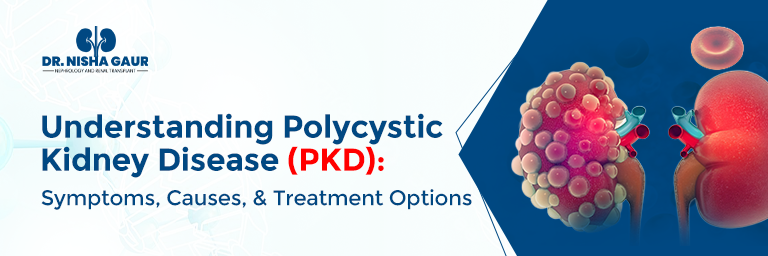When one undertakes a kidney transplant, it is a fresh phase in life, a phase that is characterized by hope, appreciation, and commitment. After the surgery has taken place, your body now enters its vital healing process. This is what is referred to as Kidney Transplant After Care, and this is where your long-term health is either made or broken.
Follow-up visits are not the only thing related to good Kidney Transplant After Care. It is having regular routines, drug routines, living styles, and knowing what is normal so you are able to pick up on things quickly. Here you will find everything you need to be healthy in recovery, and the valuable input of Dr. Nisha Gaur, a medical specialist in kidney transplantation follow-ups, a caring heart.
What Is Kidney Transplant After Care?
Kidney Transplant After Care refers to all the processes you, as well as your healthcare team, carry out after the operation to safeguard your new kidney and assist your body to adapt.
The Reasons Why You Need It
The new kidney is an alien organ. This could be perceived by your body and it may attempt to reject it.
To develop a healthy life, you require proper medicines, habits, food, and self-checkups to prevent problems.
What Are the Aims?
- Avoid being rejected due to a tamed immune system.
- Control medications by making them effective and with minimum side effects.
- Take medical rest, sports, and care of the body.
Important Phases of After Care
- Hospital recovery (1–2 weeks): During this period, the doctors supervise your vital statistics, examine the wound, and make changes in medications.
- Home recovery (within the first 3 months): You will be resting much, keeping regular visits to doctors, and having daily healthy routines.
- Mid/late-stage recovery (3 months–1 year): You will be stronger, can be back at work, and work on maintaining a long-term healthy life.
Core Components of Kidney Transplant After Care
A transplant needs more than surgery. Here’s what makes Kidney Transplant After Care really work:
Adherence to Medications and Immunosuppressants
These drugs help keep your body from attacking the new kidney.
The common varieties are tacrolimus, mycophenolate, and prednisone.
Take them fully as stated—at the same time each day. Missing doses may be harmful.
Check out the side effects, such as swelling, jitters, or high blood sugar—report to the doctor.
Vital Signs and Kidney Monitoring
Your blood pressure and temperature should be measured at home every day.
Look at any abnormal weight gain or swelling.
Routine laboratory tests (creatinine, blood counts, etc.) assist in the evaluation of kidney function.
Maintain a health diary: record medications, meals, drinking water, energy status, and symptoms.
Prevention of Infection and Hygiene
Even a mild cold will give you a problem as your immune system is subdued.
Clean hands regularly—preferably before meals or after going out into a crowd.
Raw food, unpasteurized products, and meat that is undercooked should be avoided.
Keep yourself current with vaccines—avoid live vaccines without a doctor’s prescription.
· Do not make your face congested with make-up before you have healed.
Diet: Hints about Nutrition and Drink
- Focus on balanced meals: lean meat, whole grain, fruits, and vegetables.
- Take as less salt (sodium) content as possible to maintain the blood pressure, and take fluids as suggested by the physician.
- Do not eat grapefruit: this could be reactive with some medications.
- Taking into account side effects like indigestion or loss of appetite, one will be recommended to keep a food diary.
- Supplements (including probiotics) may help but ask your physician.
Importance of Sleep and Rest During Recovery
A good rest is an essential part of Kidney Transplant After Care.
Why Sleep Matters
- Your body replaces your tissues and organs when you sleep.
- Sleeping well will result in a better-performing kidney.
- Your immune system works better when you get good sleep.
Managing Fatigue
- It is quite normal to feel tired during the first few months.
- Factor in rest or nap time in your schedule.
- Do not work yourself too hard—listen to your body.
Creating an Emphasis on Sleep
- Schedule sleep: Attempt 7–9 hours of sleep at night.
- Take your rest: Short rest during the day can be effective.
- Deal with pain or discomfort: Discuss the issue with your doctor in case you do not sleep well.
Best Sleeping Positions After Kidney Transplant
Position of sleep is more important than you might imagine for Kidney Transplant After Care.
Recommended Positions
- It should be done on your back since lying in this position does not exert any pressure on the nephrectomy area.
- Turn to the other side of the transplant when you want to sleep on your side.
- Lay extra pillows under your knees, your arms, or your sides.
Aspects to Avoid
- It may not be advisable to lie on the side upon which the kidney has been transplanted.
- Never sleep lying on your stomach because it may lead to irritation, pain, and wound shifting.
Tips and Supports
- Use a medium-firm pillow between your knees as support for your lower back.
- Pull a body pillow near to you and rest your arms and legs against it.
- Make the bed with light cotton beddings and ensure the room is cool to enhance sleep quality.
When to Consult a Doctor
One should understand when it is best to seek assistance even with the best Kidney Transplant After Care.
Signs to Look Out For
- Severe fever (higher than 100.4°F / 38°C)
- New/increase in pain or swelling around the transplant
- Urinary changes (consider the amount, the color, the pain, the frequency)
- Strange weight gain and swelling of your legs
- Difficulty in breathing, chest pains, or dizziness
Follow-Up Appointments Are Very Important
Frequent visits in the beginning are given with a time lapse that steadily increases.
Your physician checks the medicines, measures the vital signs, reviews lab reports, and identifies signs of rejection.
When something doesn’t feel right, do not hesitate. During checkups, it is always advisable to act early.
Personalized Care
All patients are individuals. Dr. Nisha Gaur is mostly interested in creating personal plans depending on your job, lifestyle, and health requirements.
The availability of a local transplant professional assists in keeping the Kidney Transplant After Care consistent, motivating, and proactive.
Book a Consultation with Dr. Nisha Gaur
The Reason to Choose Dr. Nisha Gaur
She links her medical skills with humility, listening, and clarity.
Patients who are knowledgeable about their conditions and medications feel empowered.
As a renowned kidney specialist in Jaipur, she can assist transplant recipients both during and after surgery to make daily modifications and long-term follow-up due to her experience.
Making a Timetable of Care
In case you are new to Kidney Transplant After Care or feel overwhelmed, contact her clinic.
Her staff will explain further steps to you: documents, visits, initial testing, and long-term treatment programs.
Conclusion
The road to recovery after a kidney transplant is not only about getting over it, it is about developing a well-balanced life. Why you are successful:
- Everyday tasks that involve medications, sleep, self-checks, and good food
- Correct sleep and comfortable positions that assist your body in resting and recovery
- Precaution against infections with smart hygiene and nutrition habits
- Learning the warning signs—and calling your doctor early
- Maintaining connection with a physician such as Dr. Nisha Gaur, who provides personalized, caring, and skilled follow-ups



